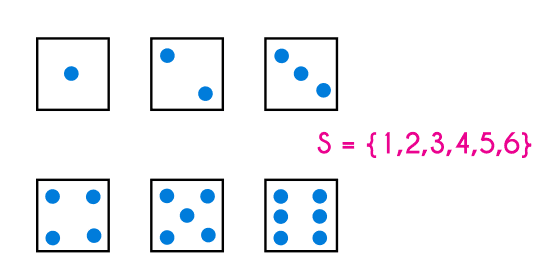Probability: definition, concepts and examples
This article will be about The probability, the general definition of probability, and the concepts used in this area.
Definition of probability
The objective of the probability is to predict the result we are going to get when we make an event. The probability more than predict a result, what it does is that finds every possible result we could get, and this way determine the most likely outcome among all.

The probability could be useful in different circumstances, one of them could be in casino games, the probability in games related with “luck” could determine which game is worth to play or if is more convenient to quit a game that was made just to lose.
The probability is represented by a value between 0 and 1, being 0 the nonexistence of probability and 1 the absolute affirmation that a result is going to come out. The probability can also be represented in percentages that goes from 0% to 100%, this measure is obtained by multiplying the value of the probability by 100%.
In probability there are many types of probabilities, where each probability uses different parameters to find the most likely outcome, some probabilities use the possible outcomes, others use previous results and others are far away from mathematical process and focus in thoughts that indicate that an outcome is going to come out, however, in probability in general, there are some terms used to refer to parts of the events, this is why it is so important to know how to name and differentiate each concept of probability.
Concepts of probability
So you can understand better each term, we are going to use the following example: Roll a dice.
Sample space.
The sample space is a set that is composed by every possible outcome, this is represented by the letter “S”, but it could change if we want to adapt the letter to the problem we are solving. Like the sample space is a set, the elements are represented between brackets, like this: S={r1,r2,r3,r4,…,rn}, where rn is every result or outcome.
In the example of rolling a dice, the sample space would be composed by each face the dice could land on, from 1 to 6, like this: S={1,2,3,4,5,6}.
Outcome.
An outcome is every possible result we could obtain when we make the aleatory event. In general the sample space is composed by every possible outcome. Although the concept of outcome is simple, there are some types of outcomes or events, the type of outcome we are going to use in the resolution of problems will depend on the analysis of the problem, normally the type of outcome we are using is not in the problem, so we have to know the types of outcomes there are so we can know in which situation we have to use one type and in which conditions we have to work with other type of outcome.

Elementary event.
Is every outcome possible, or every outcome which compose the sample space separately, this means that every possible outcome is an elementary event, for example, in the case of the dice, the elementary events would be [1],[2],[3],[4],[5],[6]
Compound event.
Is the combination between 2 or more outcomes, and this, even when is composed by two or more outcomes, it becomes in an outcome itself, the compound events are used to find more structured and generalized probabilities.
In case of the dice, the probability of an elementary event would be: ¿What is the probability that when we roll a dice, this lands in the face 2?, instead, to find a compound event would be ¿What is the probability that when we roll a dice, this lands in an even face?, in this case the compound event would be the combination of the following outcomes: {2,4,6}, another example would be: calculate the probability that when we roll a dice this lands on a face greater than 4. In this example the compound event would be the probability of the following outcomes: {5,6}.
Compatible events
When we talk about this type of outcomes, we are talking about composed events, this means that 2 outcomes or events can happen at the same time, for example, the event that we get an odd number: {1,3,5}, and the event that we get a prime number {2,3,5} are compatibles, because it is possible to get a prime and an odd number, because if we get a 3 or a 5, these number are both primes and odds.
Incompatible events
As we could deduct by the name, these are the opposite of the previous one, these are events that cannot happen at the same time, for example: the event that the dice lands in a number greater than 3 {4,5,6} and the event that it lands in a number lower than 3 {1,2} are incompatible events, because it is not possible that a number is greater and at the same time lower than 3.